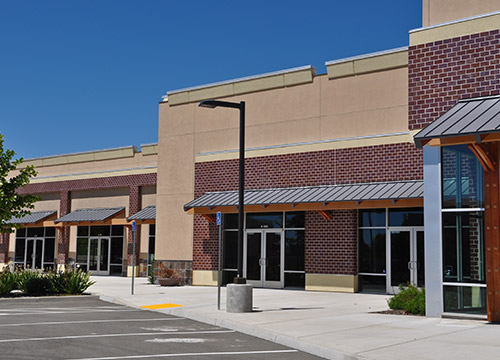Negotiating Commercial Real Estate Leases
By Andy Tiwari

If you thought snagging the perfect retail spot was a daunting task, think again!
Making sure that dream location fits your needs and budget also requires carefully negotiating your real estate lease. Navigating through this complex issue takes knowledge and skill to make sure you are not paying increasingly more than your neighbor or other incoming tenants and that, if something goes wrong, you’re not left completely ‘holding the bag.’
Hiring a good commercial realtor or broker is a good start, and many are knowledgeable of leasing rates and trends. However, there are elements of leases that only a real estate attorney can properly interpret and renegotiate. Unfortunately, lease negotiations proceed rapidly once you start the process of submitting something as simple as a letter of intent, and it may not be possible for your attorney to renegotiate unfavorable terms if he/she is hired later in the process. Your best course of action is to hire an attorney who is experienced with real estate leases as soon as you’ve chosen your location and have your broker/realtor and the attorney work together.
Leases are often robust 30+ page documents, and we can’t cover everything in this post, but here are a few items you, your broker, or your attorney should be aware of when negotiating leases:
Terms of the Lease – If you find the right spot at a great price, you might be tempted to commit to a 5- to 10-year lease, but many business owners overestimate their lease-term needs. Landlords generally offer more favorable lease terms for longer commitments – but business owners need to make sure that the location is indeed a good fit and negotiate around long-term risks where possible (for example, is your business’ success tied to the continuous operation of the big-box retailer next door?).
Contrary to popular opinion, it isn’t that easy to get out of a lease if things just ‘don’t work out’ for your business – you’re likely to incur a hefty penalty for breaking the lease, and landlords often have a lot invested in your lease and will pursue legal action for damages. Consider instead negotiating two-year or three-year terms with options for renewal.
On the other hand, some businesses actually underestimate the length of the lease they need, and fail to secure proper long-term rights. As always, no two situations are the same, and this is why it’s important to work with an experienced advisor early in the process.
Watch the Extras – The lease rate might sound great, but don’t forget you’re often responsible for extra fees, such as upkeep of common areas and maintenance. In some properties, these “extras” have the potential to increase dramatically. If possible, try to negotiate fixed rates or caps on how much these items can increase over time. Sometimes you’re able to get a list of what other tenants are paying for each item or an idea of how much costs have risen historically – this can be critical, especially in leases where the ‘extras’ account for much of your rent (I’ve seen leases where the ‘extras’ are almost 50% of the monthly payment).
Many clients are surprised by the requirement that they maintain things like air conditioning units, but this is very common in Texas and increasingly the custom nationwide. But how old are the units when you take over the space? Will the landlord at least warranty their operation for a year? Depending on your lease space, failing to properly negotiate these terms could lead to some rather expensive air condition replacement costs while you’re trying to establish or grow your business.
Other Clauses – There are many additional clauses you can include in your contract to help you weather the ups and downs in business and others you need to examine for their impact on your operations.
One critical clause in the retail sector is that of exclusivity. Most retail businesses don’t want a direct competitor next door, and this clause helps makes sure your competition doesn’t gain a foothold in your shopping center or geographic reach.
What happens if you sell your business or want someone to sublease? Medical practitioners in particular often sublease their space (sometimes without knowing it). Careful review of the sublease clause or any lease assumption language is critical. In other instances, you might need to move out right away, and your sublease might allow you to sublease to another tenant without having to break the lease and incur charges.
Another element that often surprises novice business owners is the lease guaranty, basically a contract saying you will pay any money owed to the landlord in case of a default. Yes, you should expect to sign a personal guaranty if you want to enter into a commercial lease in Texas (unless you’re personally leasing the space to begin with). It is rare that a personal guaranty will be removed or not required. However, experienced counsel can help negotiate aspects of the guaranty to accommodate changes in the business or reward timely rental payments.
If you need legal advice, schedule a meeting with Tiwari + Bell PLLC through our website or by calling (210) 417-4167
